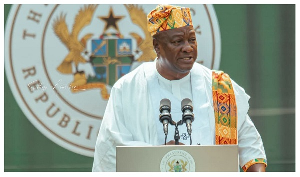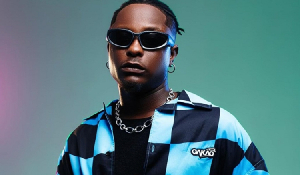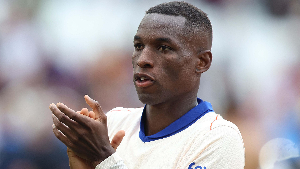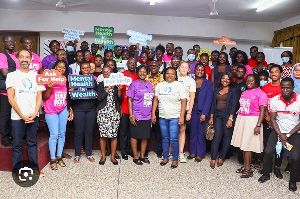Ghana’s political history has it that the country has had three constitutionally constituted governments which were overthrown by the military. Thus, three republic eras were truncated.
Multi-party democracy was re-introduced in Ghana in 1992 to begin its fourth Republic from January 7, 1993, and this era has run smoothly till now. The just-ended general election has, thus far, given us the opportunity to constitute the eighth parliament on January 7, 2021.
Ghana’s chequered republican history calls attention to how far we have come and the need to safeguard the fourth Republic to improve the lives of people.
We also need to cling to it to boost the respect we, as a country, have earned for entrenching democracy thus far, so that we can muster all courage to hold ourselves proud of our democratic achievements in a turbulent sub-region.
Now, we know that democracy thrives on certain institutions and one among the most important ones is parliament. In Ghana, Parliament plays four major roles.
First, it is a law-making body and the only one that has the power to pass laws. Any other body doing the semblance of this function can do so with regard to bye-laws and regulations and such must be subordinated to the laws passed by parliament.
Second, since its members come from various constituencies across the country, they have a representational role as the link between their constituents and the government. Thus, they become the mouthpiece of their constituents in governance.
Third, they have oversight of the Executive, who control public services, to ensure that implementation of policies conform to the development agenda of the state.
Finally, the 1992 Constitution has vested the control of public funds in parliament. Thus, parliament must know and approve sources of state revenue and how it is expended.
The functions of parliament, thus, cast it as the live wire of any democracy. Therefore, the members of parliament must see themselves as people upon whom the development of the state and the progress of her people depend.
Unfortunately, we have seen in Ghana that most of the time minority side have their say while the majority always have their way even if it is not the best for the nation. All this has happened because most of the time, the party in power has absolute majority in Parliament.
The 2020 election, so far seems to have produced a hung parliament. A hung parliament is one in which no particular party has clear absolute majority. So far the New Patriotic Party, the governing party, has 137 seats out of 275, the opposition National Democratic Congress has 136, there is one independent member-elect, and one seat, Sene West, is yet to be declared.
Experts say that the eighth parliament of the 4th Republic is going to be the best because this is the time parliamentarians should show their salt and seek the interest of the nation and her people.
According to them, in such a hung party, members would not take their constituents for granted, hence they would passionately fight for their interest.
Therefore, consensus building would be key and the majority, and for that matter the government, cannot bulldoze its way through issues as previously. Thus, our democracy would grow for the benefit of the people.
The Ghanaian Times shares the view of the experts and so urge our law makers to use the new experience for the progress of democracy and national development.
Editorial News of Wednesday, 16 December 2020
Source: ghanaiantimes.com.gh

















